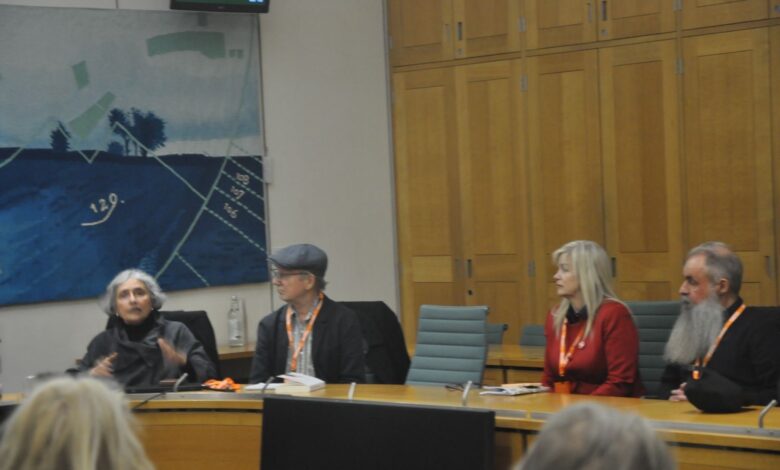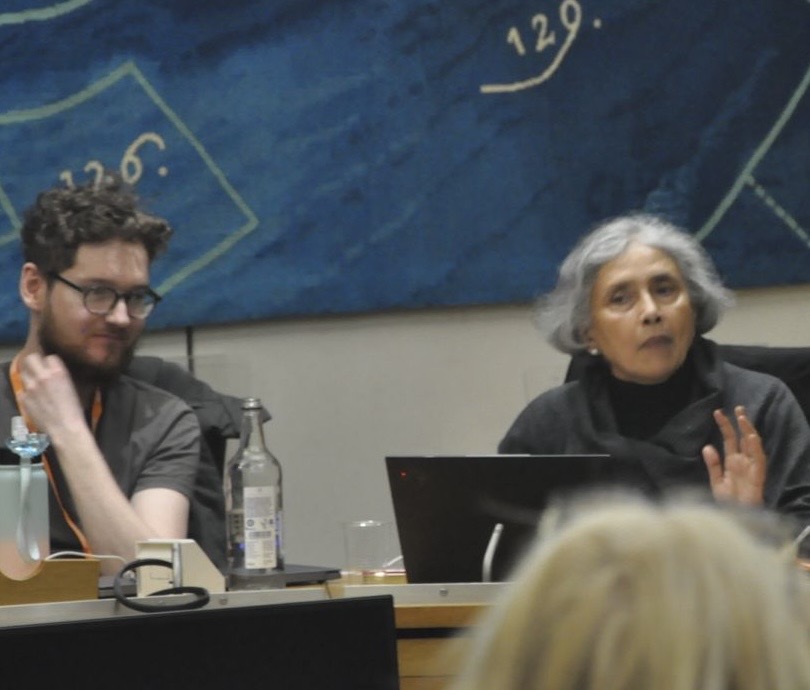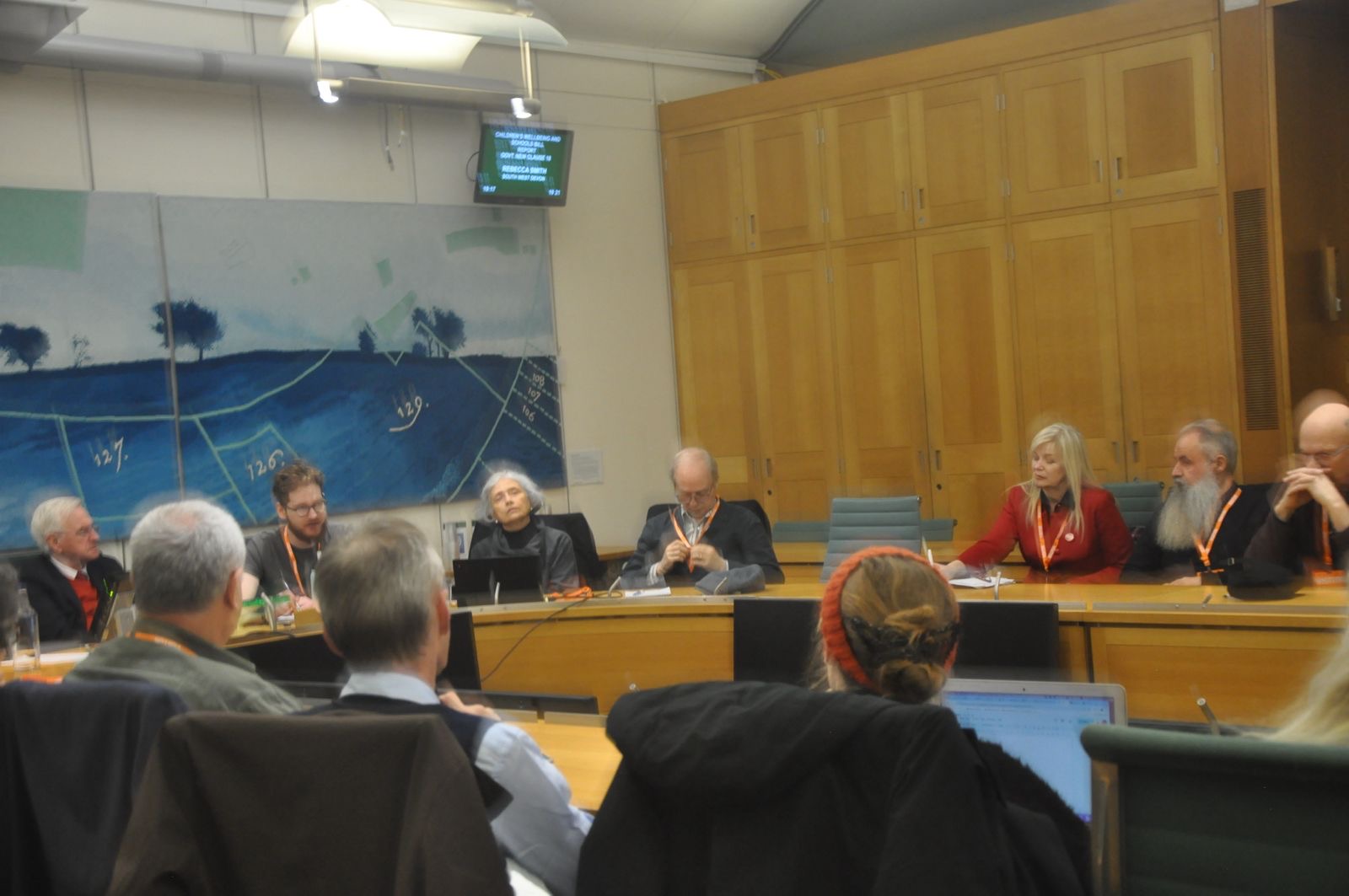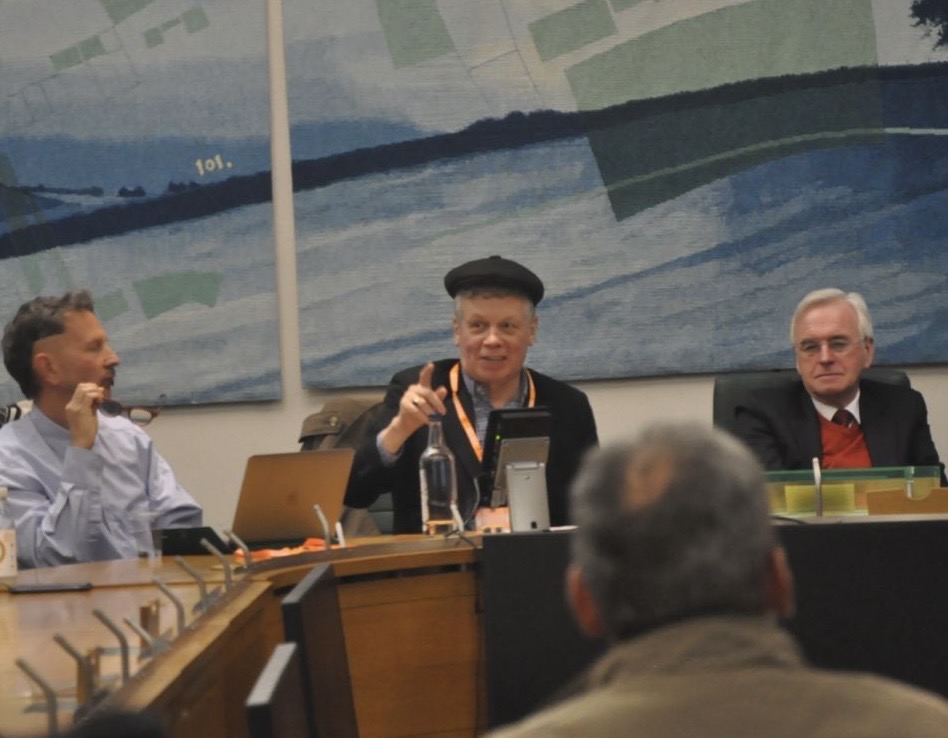
The Sixty-Four-Dollar Question
Portculis House/Cybersalon debate 10th March 2025 With John McDonnell MP
Blog by: Irina Shtreis
While looking for a title for this report, this author was astounded to find an abundance of idioms mentioning the dollar. The more ubiquitous and economically persistent the currency, the more frequently it’s mentioned by speakers in different parts of the world. Take, for example, dollars-and-cents, a phrase describing a method or approach focusing on money in specific amounts. For a long time, the dollar has been a currency associated with world domination. Nevertheless, its notorious pressure on the global economies since the early 20th century has triggered questions of whether there would be any alternatives such as new payment systems and global currency. The most recent political shift sparked another round of debate.
With its name referring to Koen Byttebier’s book Towards a New International Monetary Order, the debate at Portcullis House (HoC), opened a space for a discussion around the same topic in a more global context. The panel topic titled Towards a New Global Monetary System is one of the events co-hosted by Cybersalon and Claim The Future, a debating series initiated by John McDonnell MP. “Over the years, one of the things I’ve been doing is hosting the meetings at House of Commons, just to stimulate debates around issues that are worth talking about”, said Mr McDonnell. The MP explained the agenda behind Claim The Future which came about shortly after the pandemic in an attempt to answer the questions posed by Covid 19. “We did that years ago under the umbrella of The People’s Parliament, the idea was to open up a space for people to come along and discuss issues that should be addressed.
Zooming out on the global state of the world, particularly the Global South, in the shadow of the US economic powers, speakers and visitors were challenged to imagine a scenario where the dollar would no longer be a currency of prime importance. Given ten minutes each, the three experts expressed their views on whether we can re-think the dollar dominance and suggested focus on newly emerging alternatives.
Stressing the contradictory approach to the economy of the current US administration, Simon Youel (Positive Money) mentioned a weaker dollar policy, to support the manufacturers and exporters, versus the ambition to keep it as the dominant central bank reserve currency. “Trump seems to want to weaken the dollar but also [wants] everyone to use the dollar”. In Youel’s opinion, this would depreciate the currency, potentially establish its security and impose the dollar even further as the US is currently worried about the potential economic dominance of other rising states such as China. The need to diverge from the currency used for economic warfare is obvious. But which direction to go?
Some current solutions, the researcher stresses, are signposting the way out of the dollar monopoly. One such is the synthetic dollar or stablecoins system which mimics the value of the currency but is not tied in with physical dollars held in reserve.
 Contrasting with the optimistic view, Wessel van Rensburg (Cybersalon), the Netherlands-based South Africa-born advisor to banks on public policy and business strategy, introduced a grimmer view of world economics. “I think that the Donald Trump administration is more extreme than my worst predictions”. The policy reinforces the already existing sticky state of the American currency. “America has always had an open economy”, explains van Rensburg. “For now, they don’t have capital controls. It has a deep and liquid capital market and a huge bond market. It’s great for wealthy people with lots of money and investments”.
Contrasting with the optimistic view, Wessel van Rensburg (Cybersalon), the Netherlands-based South Africa-born advisor to banks on public policy and business strategy, introduced a grimmer view of world economics. “I think that the Donald Trump administration is more extreme than my worst predictions”. The policy reinforces the already existing sticky state of the American currency. “America has always had an open economy”, explains van Rensburg. “For now, they don’t have capital controls. It has a deep and liquid capital market and a huge bond market. It’s great for wealthy people with lots of money and investments”.
Still, some recent discussions on the local (UK) level suggest a positive trend. “In the UK they are talking about the financial reorganisation of pension funds”, says van Rensburg. “Only 6% of the UK’s pension funds are invested in the UK stocks, the rest are vastly invested in America. As of now, UK is actively considering offering incentives to bring some of this capital back home”.
Talking about the payment systems in the context of the multipolar world, van Rensburg adds: “In the future, all of the smaller countries will be forced to choose [the currency] of one of the bigger players”.
 Addressing the point on the sticky nature of the Dollar, Radhika Desai, Professor of Political Studies, the University of Manitoba, Canada, provides a counterargument. “To me, the story of de-dollarization is a story in two parts. One is widely discussed, while the other is actively denied, especially in the academic industry in the US, the Dollar boosters, basically”.
Addressing the point on the sticky nature of the Dollar, Radhika Desai, Professor of Political Studies, the University of Manitoba, Canada, provides a counterargument. “To me, the story of de-dollarization is a story in two parts. One is widely discussed, while the other is actively denied, especially in the academic industry in the US, the Dollar boosters, basically”.
“The Dollar system has never been vital and stable, it has always been extremely volatile, and de-dollarization has been going on for a long time”. The time it has taken is partly due to internal issues that, for instance, countries such as BRICS members have been dealing with: “All of the BRICS countries have powerful elites that have invested in the Dollar system and don’t want to see it go”.
Nevertheless, “the Dollar system is likely to collapse before the alternatives to it have been actually alternatively constructed”, Desai offers her grim forecast. “The US needs a plan B, it has always followed a plan A which is world domination”. The prospects of disorderly collapse of Dollar system would be extremely disruptive for all trading nations.
The round of presentations ended with an extensive Q&A session addressing a wide range of socioeconomic aspects from trade, global currency, what would the policy of an imaginary “good president of America” look like and their policy towards China. Questions were asked comparing long-term nature of China industrial planning (measured in decades) to short term framework of US, often reduced to quarterly reports driven by Stock Exchange demands. Attendees from Global South also proposed the topic of future debates on alternatives to current domination of the Western currency system over poorer countries.
“One of the points is that the value of the Western money relies on keeping the Third world poor”, Desai commented on the latter. “If the Third world were to develop, what would happen? There would be a greater demand for the resources of the planet. If it was not prevented from development, there would be the collapse of the dollar and Western currencies”.
 The session was introduced by John McDonnell MP, hosted by Eva Pascoe and chaired by Dr Richard Barbrook from Cybersalon.org. Thank you to Claim The Future and RSA for supporting this excellent and popular event.
The session was introduced by John McDonnell MP, hosted by Eva Pascoe and chaired by Dr Richard Barbrook from Cybersalon.org. Thank you to Claim The Future and RSA for supporting this excellent and popular event.
With thanks to: Baroness Natalie Bennett, Mina Tokosz-Blauel, Andrew Mailing (FRSA), Alec Robertson (FRSA), Wael Elazab (Cybersalon), Dr Sophia Drakopuolou (Middlesex University), Stephen Oram (FRSA), Wensupu Wen Yang (FRSA) and many others
The next debate 10th June will be titled “Who is afraid of Bancor money and are we ready for a new supranational currency” with Prof Radhika Desai versus supporters of cash economy.




